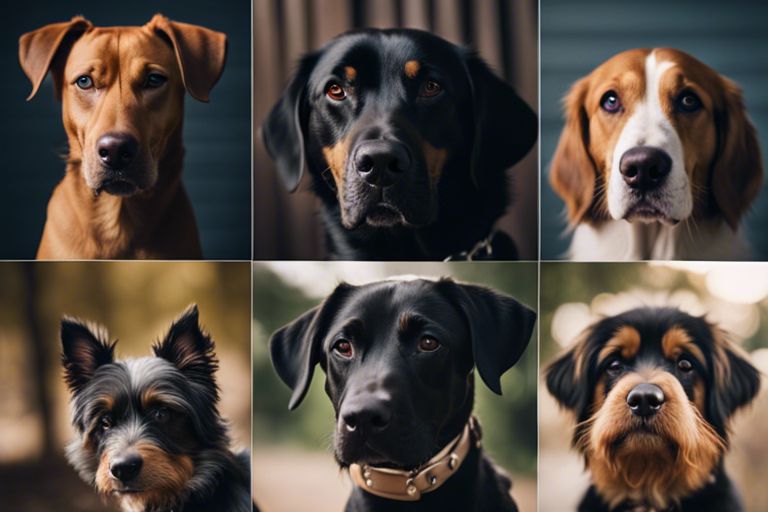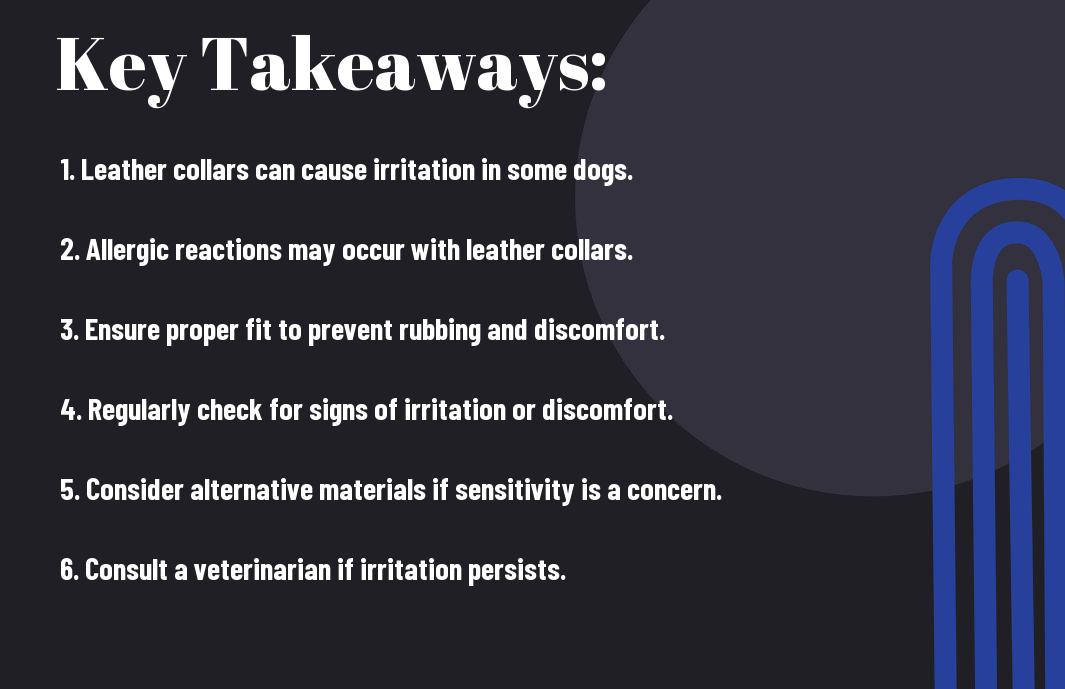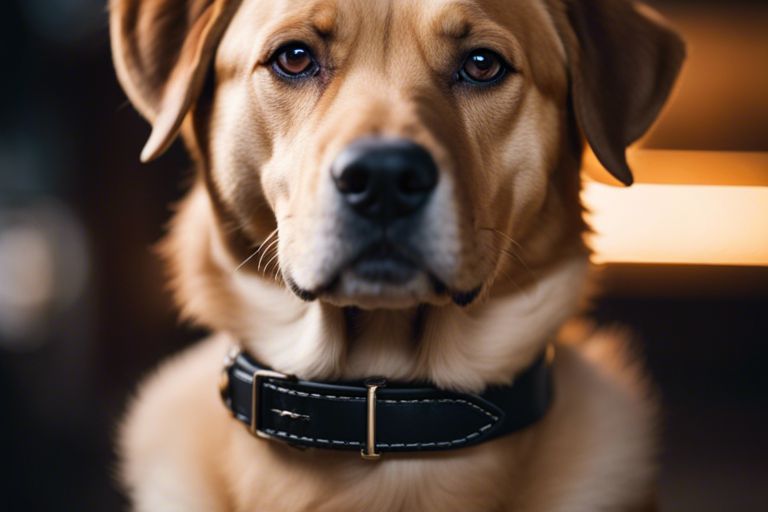With a wide range of dog collars available on the market, it’s necessary to choose the right one for your furry friend’s comfort and health. While leather collars are durable and stylish, some dogs may experience irritation from them. In our informative blog post, we will explore the potential reasons why leather collars might irritate dogs and provide tips on ensuring your dog’s collar is both comfortable and safe. For more information on choosing the right collar for your dog, check out our article on Leather Dog Collars vs. MicroFiber and Synthetic.

Key Takeaways:
- Material sensitivity: Some dogs may experience irritation or allergies when wearing leather collars due to the material used.
- Proper fit: Ensure the collar is not too tight or too loose to prevent rubbing and discomfort, which can irritate the dog’s skin.
- Regular cleaning: Keep the leather collar clean and dry to prevent the buildup of dirt, bacteria, or fungi that could cause irritation.
- Quality of leather: Opt for high-quality, softer leather collars to minimize the risk of irritation compared to lower-quality, stiff leather.
- Alternatives: If your dog shows signs of irritation with a leather collar, consider switching to a different material like nylon or fabric to see if it improves their comfort.

Understanding Leather Collars
Little is known about the materials used in the creation of leather collars for dogs. Understanding the different types of leather can provide insight into the quality and comfort of these collars.
Types of Leather Used in Collars
On leather collars for dogs, various types of leather are utilized. Full-grain leather, top-grain leather, and genuine leather are the most common. Each type differs in quality and durability, with full-grain being the most superior and durable, followed by top-grain and genuine leather. After considering the type of leather used, it’s important to factor in the tanning process to ensure the collar is safe and comfortable for your dog.
Advantages of Leather Collars
Collars made from leather offer several advantages over other materials. Leather is a durable and long-lasting material that can withstand daily wear and tear. Plus, leather collars are known for their classic look and style, making them a popular choice among dog owners.
Moreover, leather is a breathable material that reduces the risk of irritation or discomfort for dogs, especially those with sensitive skin. Leather collars also conform to the dog’s neck over time, providing a comfortable fit that doesn’t cause rubbing or chafing.

Skin Irritation in Dogs
Common Causes of Skin Irritation
For your furry companion, skin irritation can be caused by a variety of factors such as allergens, parasites like fleas or mites, bacterial or yeast infections, and even dietary issues. These can result in symptoms like redness, itching, hair loss, and rashes.
Identifying Irritation from Collars
Irritation from collars is a common issue for dogs, particularly if they are made of materials like leather that can rub against your pet’s delicate skin. Signs of irritation from collars include redness, hair loss, sores, and constant scratching. If you notice these symptoms, it’s crucial to address the issue promptly to prevent further discomfort for your furry friend.
Plus, not all dogs will react the same way to a collar. Some may have sensitive skin that is more prone to irritation, while others may not show any signs of discomfort at all. It’s important to monitor your dog’s skin regularly, especially in areas where the collar sits, to catch any irritation early on. If you notice any signs of irritation, consider using a different type of collar or consulting with your veterinarian for alternative solutions.
Factors Contributing to Collar-Induced Irritation
Once again, it’s important to understand the factors that can contribute to irritation caused by leather collars. By being aware of these elements, pet owners can make informed decisions when it comes to choosing the right collar for their furry friends.
- Allergies to Leather
- Inadequate Collar Maintenance
Allergies to Leather
To ensure your dog’s comfort and health, it’s crucial to consider the possibility of allergies to leather when selecting a collar. Leather is a common allergen for dogs, causing irritation and discomfort. If your dog displays signs of irritation such as redness, itching, or hair loss around the neck area, it may be due to an allergic reaction to the leather collar. Consider switching to hypoallergenic alternatives such as nylon collars to alleviate these symptoms.
Inadequate Collar Maintenance
On occasions, inadequate collar maintenance can also lead to irritation in dogs. Factors such as dirty collars, improper fitting, or worn-out materials can contribute to discomfort and skin issues. It’s important to regularly clean and inspect your dog’s collar for any signs of wear and tear. Ensure proper fitting to prevent chafing or rubbing against the skin, which can lead to irritation. By investing in high-quality collars and regularly maintaining them, you can prevent unnecessary discomfort for your furry companion.
This is why it’s crucial to understand the differences between a Nylon and a Leather Dog Collar to make an informed decision that prioritizes your dog’s well-being.
Prevention and Care
Choosing the Right Collar for Your Dog
One important factor to consider when selecting a collar for your dog is the material it is made of. Opt for high-quality leather collars that are soft and flexible to reduce the risk of irritation. Ensure the collar fits correctly, not too tight or too loose, to prevent chafing or rubbing against your dog’s skin.
Tips for Preventing Collar Irritation
Any signs of irritation on your dog’s neck should be taken seriously. To prevent collar irritation, regularly check for any redness, chafing, or hair loss under the collar. Rotate the collar’s position regularly to prevent constant pressure on one spot. Use a barrier like a soft fabric band between the collar and your dog’s neck to reduce direct contact with the skin.
- Regularly check for signs of irritation
- Rotate the collar’s position to reduce pressure
- Use a soft fabric band as a barrier
After taking these precautions, always monitor your dog’s neck for any red flags that may indicate irritation. Do not forget, prevention is key when it comes to your dog’s comfort and well-being. If irritation persists, seek advice from your veterinarian immediately to avoid any further discomfort for your furry friend.
Conclusion
Hence, when considering whether leather collars irritate dogs, it is crucial to pay attention to the quality and fit of the collar. Leather itself is not inherently irritating, but poorly fitting or low-quality collars can cause discomfort and skin issues for dogs. It is imperative to choose a properly sized, comfortable leather collar to ensure your dog’s well-being. For more information on how to choose the right collar for your canine companion, visit Is leather dog collar irritating to dogs – Xparkles.
FAQ
Q: Do leather collars irritate dogs?
A: Leather collars, when properly fitted and maintained, generally do not irritate dogs. However, some dogs may have sensitive skin and may develop irritation from the leather material rubbing against their skin.
Q: How can I prevent leather collars from irritating my dog?
A: To prevent irritation, ensure the collar fits comfortably and is not too tight. Opt for high-quality, soft leather collars and regularly check for any signs of irritation or discomfort.
Q: Are there alternatives to leather collars for dogs with sensitive skin?
A: Yes, if your dog has sensitive skin, consider using collars made from materials like nylon, neoprene, or natural fibers such as cotton or hemp, which are softer and less likely to cause irritation.
Q: How should I clean and maintain a leather collar to prevent irritation?
A: To clean a leather collar, use a damp cloth to wipe off dirt and then gently rub a leather conditioner to keep the leather soft and supple. Regular maintenance helps prevent the leather from drying out and causing irritation.
Q: What are the signs that a leather collar is irritating my dog?
A: Signs of irritation from a collar include redness, hair loss, sores, or constant scratching or rubbing of the neck area. If you notice any of these signs, remove the collar immediately and consult with your veterinarian.
